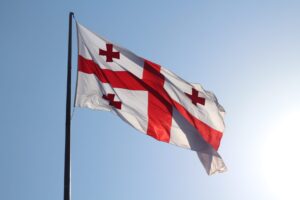The following is based on a communication written by the UN Special Rapporteur on Human Rights Defenders and other UN experts to the Government of Italy on 31 May 2024. The communication remained confidential for 60 days before being made public, giving the Government time to reply. The Government replied on 5 August 2024.
Since the sending of the communication, the obstruction of NGO search and rescue in the Central Mediterranean by the Italian authorities has continued, including through the practice of assigning extremely distant ports of disembarkation in contravention of international maritime law and the law of the sea. Appeals by the Sea-Watch 5 crew against the fines issued against it remain pending, with further hearings fixed for the 14th and 30th October 2024. The next hearing in the case concerning MSF and the Geo Barents is scheduled for 27 November 2024.
This is a shorter version of the original communication.
BACKGROUND
Topic: the administrative detention of civilian search and rescue ships in the Central Mediterranean and the continued practice of assigning distant ports for the disembarkation of individuals rescued in distress at sea.
Sea-Watch is an organisation that grew out of a volunteer movement responding to the refugee situation in late 2014. The organisation has been engaged in search and rescue activities in the Central Mediterranean, rescuing over 45,000 individuals in distress at sea. It currently operates the Aurora and the Sea-Watch 5 ships, as well as conducting aerial human rights monitoring missions.
Médecins Sans Frontières (MSF) is a humanitarian organisation that has been conducting search and rescue operations in the Central Mediterranean since 2015, rescuing tens of thousands of individuals in distress at sea.
Since 2014, and as of the time of writing, the International Organization for Migration (IOM), through its ‘Missing Migrant’ project, has recorded the deaths and disappearances of 23,291 migrants along the Central Mediterranean route. Since 9 February 2023, the date of the previous communication to the Italian Government, in which allegations as to the repression and obstruction of civilian search and rescue in the Central Mediterranean were raised (AL ITA 1/2023), 2,980 deaths and disappearances have been recorded.[1] IOM highlights “gaps in search-and-rescue capacity and restrictions on the life-saving work of NGOs” as one of the factors contributing to making the route the world’s deadliest for migrants.[2] The data on deaths and disappearances collected through the project likely represents a significant undercount.
Serious concerns as to the compatibility of Decree-Law no. 1/2023 with international maritime law and the law of the sea and its impact on civilian search and rescue activities were raised with the Italian Government in a previous communication.
Serious concerns related to the criminalization of human rights defenders working in support of migrants, refugees and asylum seekers in Italy and at its borders have been repeatedly raised with the Government of Italy by multiple UN experts (see, most recently, ITA 1/2022, ITA 2/2021, ITA 1/2021 and ITA 7/2020).
ALLEGATIONS
Since January 2023 and the enactment of Decree-Law no. 1/2023, subsequently converted into Law no. 15/2023, at least 20 civilian search and rescue vessels have been detained on the basis of the legislation. In parallel, the practice of assigning extremely distant ports of disembarkation for individuals rescued in distress at sea, by civilian search and rescue boats, has continued since its mainstreaming in December 2022.
The Sea-Watch 5
On 3 March 2024, the Sea-Watch 5, sailing under the German flag, took 70 people on-board in the course of two rescue missions. In both instances, the crew contacted, or attempted to contact, the Libyan Coast Guard with regard to the ships in distress at sea but received no response. Following the rescue operations, the Italian authorities assigned the port of Reggio di Calabria as the place of safety for the disembarkation of those who had been rescued. Despite bad weather conditions and requests made by the Sea-Watch 5 on the night of 3 March 2024 and the morning of 4 March 2024, the Italian authorities initially refused to provide a closer port for disembarkation. In response to the bad weather conditions and the situation on board, the Sea-Watch 5 took shelter in front of Lampedusa. On 5 March 2024, the authorities agreed to trans-ship the rescued persons onto an Italian Coast Guard vessel and bring them to Lampedusa to disembark.
In the morning of 6 March 2024, the Sea-Watch 5, while in international waters, received a request from a Libyan Coast Guard vessel to change course. When the Sea-Watch 5 queried the request, indicating that it would put them on course for a collision with a nearby merchant ship, the Libyan vessel provided no further information and failed to reply to any further contact requests from the Sea-Watch 5. Later that same day, the Sea-Watch 5 spotted a potential boat in distress and attempted to call the Libyan Coast Guard vessel twice, without response. They then informed the Italian, German, Libyan and Maltese authorities about the potential ship in distress and the need for immediate assistance, before proceeding with the rescue operation. The Sea-Watch 5 took 56 people on-board during the rescue operation, including several people who were unconscious and in urgent need of medical assistance. Members of the Libyan Coast Guard were present during the rescue and instructed the Sea-Watch 5 to take the unconscious people on-board.
Following the operation, the Sea-Watch 5 informed all relevant authorities about the emergency on-board. Over the next two hours, the Sea-Watch 5 sought support for an urgent medical evacuation of those who were in a grave condition on-board, only to be met with a failure by any of the afore-mentioned authorities to take responsibility and intervene. In the absence of assistance, and due to the delay in disembarkation, two hours after the rescue operation, a 17-year-old boy who had been brought on board the Sea-Watch 5 that day, died.
Following the death of the young boy, the Sea-Watch 5 informed all relevant authorities and requested support for the evacuation of those remaining onboard in a critical medical condition, as well as a place of safety for the disembarkation of all the rescued persons. Over the following four hours, the Sea-Watch 5 was passed from the Italian authorities to the Tunisian authorities and the Maltese Authorities, and from the Maltese authorities to the Italian authorities, before eventually being instructed by the Italian Maritime Rescue and Coordination Centre (MRCC) to sail for Lampedusa to evacuate the remaining people in a critical medical condition. This happened during the night of 6 March 2024. In parallel, the Italian authorities identified Ravenna, which was 800 nautical miles and approximately 4-days sailing from the Sea-Watch 5’s location, as a place of safety to disembark the remaining rescued individuals. No guidance was reportedly provided concerning the removal of the body of the boy who had died on-board. In response, the Sea-Watch 5 made at least 6 requests for a closer port of disembarkation, noting the precarious state of the survivors on-board and the lack of equipment on the vessel to appropriately transport a corpse. On the night of 7 March 2024, the Sea-Watch 5 was contacted by the harbour of Pozzallo and informed that they could disembark all the rescued persons there. Disembarkation took place later that same night.
On 8 March 2024, the Sea-Watch 5’s Head of Mission was questioned by the Italian police for two hours, from approximately 3 a.m. to 5 a.m. Subsequently, the Shipmaster was questioned from approximately 5.30 a.m. to 8.30 a.m. These interrogations were carried out without the presence of a lawyer, with neither the Head of Mission nor the Shipmaster having been provided a transcript of the interview as they were considered “persons informed of the facts” under article 351 of the Italian Code of Criminal Procedure. Such interrogations have reportedly become standard practice since the enactment of Law no. 15/2023. Following the interrogations, the Sea-Watch 5’s Captain was summoned by the Capitaneria di Porto and informed that the Sea-Watch 5 had been detained and that they were being issued two fines under article 1.2bis (f) of Law no. 15/2023. These fines were based on the allegation that the Sea-Watch 5 had, firstly, failed to comply with the orders of the Libyan Coast Guard on 3 March 2024, and, secondly, failed to comply with the orders of the Italian authorities on 6 March 2024. The Sea-Watch 5 was detained for 20 days.
An appeal was filed by Sea-Watch against the administrative sanctions, and the suspension of the detention of the Sea-Watch 5 was ordered by the Court of Ragusa in an interim ruling on 28 March 2024, one day before the expiry of the detention order.
The Geo Barents
On 15 March 2024, the Geo Barents, operated by MSF and sailing under the Norwegian flag, witnessed an alleged ‘pullback’ by the Libyan Coast Guard, when a vessel in distress located in the Maltese search and rescue zone was intercepted by the Libyan authorities who subsequently forcibly brought the passengers, numbering over 100 people, to Libya.
On 16 March 2024, the Geo Barents was engaged in the rescue of 146 people, including children, on board a wooden boat in distress. The rescue operation took place in international waters. As it was proceeding, a Libyan Coast Guard vessel arrived at the scene and attempted to intervene during the rescue mission by the Geo Barents, performing dangerous, destabilizing manoeuvres, attempting to forcibly board a Geo Barents rescue boat, and threatening the Geo Barents crew and the persons in distress. The events took place over the course of two hours, during which the Geo Barents crew were prevented from completing the rescue. The Libyan Coast Guard finally left the scene after negotiations between the Geo Barents and the Italian, Norwegian and Libyan authorities. Later, on the same day, the Geo Barents rescued a further 75 individuals in distress, who had been on a fiberglass boat which had capsized, throwing approximately 45 people into the sea.
On 20 March 2024, all those who had been rescued by the crew that day were disembarked in the port of Marina Di Carrara, 620 nautical miles or approximately 80 hours sailing from the location of the Geo Barents when the port was assigned as a place of safety by the MRCC Rome. Following disembarkation, the Project Coordinator and Captain of the Geo Barents were interrogated by the police and Italian Coast Guard for between 4 and 5 hours. Subsequently, the Geo Barents crew were informed that the ship had been detained under Law no. 15/2023, articles 1.2bis para 1 and 1.2bis (f), for the alleged failure of the Geo Barents to comply with the instructions of the Libyan Coast Guard during the rescue on 16 March 2024 and allegedly contributing to a dangerous situation and preventing the ship from promptly reaching the port of disembarkation. On 22 March 2024, MSF lodged an appealed against the detention with the Italian Civil Court of Massa.
CONCERNS
In the communication, we express our serious concern as to the administrative detention of civilian search and rescue ships and the issuing of fines against their operating NGOs on the basis of Law no. 15/2023. We stress our concern that these detentions have been without justification, and amount to a restriction on the right to freedom of association and the right to promote and protect human rights. We underline and restate our concerns as to the compatibility of Law no. 15/2023 and the practice of assigning distant ports of disembarkation for persons rescued in distress at sea with international maritime law and the law of the sea (see AL ITA 1/2023), and question the objective of both the law and policy in light of their substantial negative impact on search and rescue capacity in the Central Mediterranean, most notably through the reduction of the time they can spend in the search and rescue zone. We reiterate our belief that while search and rescue responsibility at sea lies with the State, cooperation between civilian search and rescue ships and state authorities is crucial to ensuring the protection, respect and fulfilment of the rights of those embarking on maritime migration routes. As such, we urge the Government of Italy to ensure that civilian search and rescue operations carried out in line with international law can take place without obstruction to ensure no more lives are lost in the Central Mediterranean.
We also draw the attention of the Italian Government to the thematic report of the Special Rapporteur on the human rights of migrants on means to address the human rights impact of pushbacks of migrants on land at sea (A/HRC/47/30). In this report, the Special Rapporteur stresses that States are required to take all reasonable precautionary steps to protect life and prevent excessive violence and have committed to cooperate internationally to save lives and prevent the deaths and injuries of migrants, asylum seekers, and refugees, in accordance with international law. In this regard, delays in searching for and rescuing migrants, asylum seekers, and refugees in distress at sea, as well as in designated safe ports of disembarkation, may amount to torture or ill-treatment and undermine the right to life (parr. 44).
[1] https://missingmigrants.iom.int/region/mediterranean?region_incident=All&route=3861&month=3966&incident_date%5Bmin%5D=02%2F07%2F2023&incident_date%5Bmax%5D=05%2F09%2F2024
[2] https://missingmigrants.iom.int/region/mediterranean?region_incident=All&route=3861&month=All&incident_date%5Bmin%5D=&incident_date%5Bmax%5D



